- Home
- Nora Roberts
The Villa
The Villa Read online
Prologue
Contents - Next
On the night he was murdered, Bernardo Baptista dined simply on bread and cheese and a bottle of Merlot. The wine was a bit young, and Bernardo was not. Neither would continue to age.
Like his bread and cheese, Bernardo was a simple man. He had lived in the same little house in the gentle hills north of Venice since his marriage fifty-one years before. His five children had been raised there. His wife had died there.
Now at seventy-three, Bernardo lived alone, with most of his family a stone's throw away, at the edges of the grand Giambelli vineyard where he had worked since his youth.
He had known La Signora since her girlhood, and had been taught to remove his cap whenever she passed by. Even now if Tereza Giambelli traveled from California back to the castello and vineyard, she would stop if she saw him. And they would talk of the old days when her grandfather and his had worked the vines.
Signore Baptista, she called him. Respectfully. He had great appreciation for La Signora, and had been loyal to her and hers the whole of his life.
For more than sixty years he had taken part in the making of Giambelli wine. There had been many changes—some good, in Bernardo's opinion, some not so good. He had seen much.
Some thought, too much.
The vines, lulled into dormancy by winter, would soon be pruned. Arthritis prevented him from doing much of the hand work, as he once had, but still, he would go out every morning to watch his sons and grandsons carry on the tradition.
A Baptista had always worked for Giambelli. And in Bernardo's mind, always would.
On this last night of his seventy-three years, he looked out over the vines—his vines, seeing what had been done, what needed to be done, and listened as the December wind whistled through the bones of the grape.
From the window where that wind tried to sneak, he could see the skeletons as they made their steady climb up the rises. They would take on flesh and life with time, and not wither as a man did. Such was the miracle of the grape.
He could see the shadows and shapes of the great castello, which ruled those vines, and ruled those who tended them.
It was lonely now, in the night, in the winter, when only servants slept in the castello and the grapes had yet to be born.
He wanted the spring, and the long summer that followed it, when the sun would warm his innards and ripen the young fruit. He wanted, as it seemed he always had, one more harvest.
Bernardo ached with the cold, deep in the bones. He considered heating some of the soup his granddaughter had brought to him, but his Annamaria was not the best of cooks. With this in mind, he made do with the cheese and sipped the good, full-bodied wine by his little fire.
He was proud of his life's work, some of which was in the glass that caught the firelight and gleamed deep, deep red. The wine had been a gift, one of many given to him on his retirement, though everyone knew the retirement was only a technicality. Even with his aching bones and a heart that had grown weak, Bernardo would walk the vineyard, test the grapes, watch the sky and smell the air.
He lived for wine.
He died for it.
He drank, nodding by the fire, with a blanket tucked around his thin legs. Through his mind ran images of sun-washed fields, of his wife laughing, of himself showing his son how to support a young vine, to prune a mature one. Of La Signora standing beside him between the rows their grandfathers had tended.
Signore Baptista, she said to him when their faces were still young, we have been given a world. We must protect it.
And so they had.
The wind whistled at the windows of his little house. The fire died to embers.
And when the pain reached out like a fist, squeezing his heart to death, his killer was six thousand miles away, surrounded by friends and associates, enjoying a perfectly poached salmon, and a fine Pinot Blanc.
Part One
The Pruning
A man is a bundle of relations, a knot of roots,
whose flower and fruitage is the world.
—RALPH WALDO EMERSON
~•~
Chapter One
Contents - Prev | Next
The bottle of Castello di Giambelli Cabernet Sauvignon, '02, auctioned for one hundred and twenty-five thousand, five hundred dollars, American. A great deal of money, Sophia thought, for wine mixed with sentiment. The wine in that fine old bottle had been produced from grapes harvested in the year Cezare Giambelli had established the Castello di Giambelli winery on a hilly patch of land north of Venice.
At that time the castello had been either a con or supreme optimism, depending on your point of view. Cezare's modest house and little stone winery had been far from castlelike. But his vines had been regal, and he had built an empire from them.
After nearly a century, even a superior Cabernet Sauvignon was likely more palatable sprinkled on a salad rather than drunk, but it wasn't her job to argue with the man with the money. Her grandmother had been right, as always. They would pay, and richly, for the privilege of owning a piece of Giambelli history.
Sophia made a note of the final bid and the buyer's name, though she was unlikely to forget either, for the memo she would send to her grandmother when the auction was over.
She was attending the event not only as the public relations executive who had designed and implemented the promotion and catalogue for the auction, but as the Giambelli family representative at this exclusive, precentennial event.
As such, she sat quietly in the rear of the room to observe the bidding, and the presentation.
Her legs were crossed in a long, elegant line. Her back convent-school straight. She wore a black pin-striped suit, tailored and Italian, that managed to look both businesslike and utterly feminine.
It was exactly the way Sophia thought of herself.
Her face was sharp, a triangle of pale gold dominated by large, deep-set brown eyes and a wide, mobile mouth. Her cheekbones were ice-pick keen, her chin a diamond point, sculpting a look that was part pixie, part warrior. She had, deliberately, ruthlessly, used her face as a weapon when it seemed most expedient.
Tools, she believed, were meant to be used, and used well.
A year before, she'd had her waist-length hair cut into a short black cap with a spiky fringe over her forehead.
It suited her. Sophia knew exactly what suited her.
She wore the single strand of antique pearls her grandmother had given her for her twenty-first birthday, and an expression of polite interest. She thought of it as her father's boardroom look.
Her eyes brightened, and the corners of her wide mouth curved slightly as the next item was showcased.
It was a bottle of Barolo, '34, from the cask Cezare had named Di Tereza in honor of her grandmother's birth. This private reserve carried a picture of Tereza at ten on the label, the year the wine had been deemed sufficiently aged in oak, and bottled.
Now, at sixty-seven, Tereza Giambelli was a legend, whose renown as a vintner had overshadowed even her grandfather's.
This was the first bottle of this label ever offered for sale, or passed outside the family. As Sophia expected, bidding was brisk and spirited.
The man sitting beside Sophia tapped his catalogue where the photograph of the bottle was displayed. "You have the look of her."
Sophia shifted slightly, smiled first at him—a distinguished man hovering comfortably somewhere near sixty—then at the picture of the young girl staring seriously out from a bottle of red in his catalogue. "Thank you."
Marshall Evans, she recalled. Real estate, second generation Fortune 500. She made it her business to know the names and vital statistics of wine buffs and collectors with deep pockets and sterling taste.
"I'd hoped La Signora would
attend today's auction. She's well?"
"Very. But otherwise occupied."
The beeper in her jacket pocket vibrated. Vaguely annoyed with the interruption, Sophia ignored it to watch the bidding. Her eyes scanned the room, noting the signals. The casual lift of a finger from the third row brought the price up another five hundred. A subtle nod from the fifth topped it.
In the end, the Barolo outdistanced the Cabernet Sauvignon by fifteen thousand, and she turned to extend her hand to the man beside her.
"Congratulations, Mr. Evans. Your contribution to the International Red Cross will be put to good use. On behalf of Giambelli, family and company, I hope you enjoy your prize."
"There's no doubt of it." He took her hand, lifted it to his lips. "I had the pleasure of meeting La Signora many years ago. She's an extraordinary woman."
"Yes, she is."
"Perhaps her granddaughter would join me for dinner this evening?"
He was old enough to be her father, but Sophia was too European to find that a deterrent. Another time, she'd have agreed, and no doubt enjoyed his company. "I'm sorry, but I have an appointment. Perhaps on my next trip east, if you're free."
"I'll make sure I am."
Putting some warmth into her smile, she rose. "If you'll excuse me."
She slipped out of the room, plucking the beeper from her pocket to check the number. She detoured to the ladies' lounge, glancing at her watch and pulling the phone from her bag. With the number punched in, she settled on one of the sofas and laid her notebook and her electronic organizer on her lap.
After a long and demanding week in New York, she was still revved and, glancing through her appointments, pleased to have time to squeeze in a little shopping before she needed to change for her dinner date.
Jeremy DeMorney, she mused. That meant an elegant, sophisticated evening. French restaurant, discussion of food, travel and theater. And, of course, of wine. As he was descended from the La Coeur winery DeMorneys, and a top account exec there, and she sprang from Giambelli stock, there would be some playful attempts to pry corporate secrets from each other.
And there would be champagne. Good, she was in the mood for it.
All followed by an outrageously romantic attempt to lure her into bed. She wondered if she'd be in the mood for that as well.
He was attractive, she considered, and could be amusing. Perhaps if they both hadn't been aware that her father had once slept with his wife, the idea of a little romance between them wouldn't seem so awkward, and somehow incestuous.
Still, several years had passed…
"Maria." Sophia neatly tucked Jerry and the evening to come away, when the Giambelli housekeeper answered. "I've a call from my mother's line. Is she available?"
"Oh, yes, Miss Sophia. She hoped you would call. Just one moment."
Sophia imagined the woman hurrying through the wing, scanning the rooms for something to tidy when Pilar Giambelli Avano would have already tidied everything herself.
Mama, Sophia thought, would have been content in a little rose-covered cottage where she could bake bread, do her needlework and tend her garden. She should have had a half dozen children, Sophia thought with a sigh. And had to settle for me.
"Sophie, I was just heading out to the greenhouse. Wait. Catch my breath. I didn't expect you to get back to me so quickly. I thought you'd be in the middle of the auction."
"End of it. And I think we can say it's been an unqualified success. I'll fax a memo of the particulars this evening, or first thing in the morning. Now, I really should go back and tie up the loose ends. Is everything all right there?"
"More or less. Your grandmother's ordered a summit meeting."
"Oh, Mama, she's not dying again. We went through that six months ago."
"Eight," Pilar corrected. "But who's counting? I'm sorry, baby, but she insists. I don't think she plans to die this time, but she's planning something. She's called the lawyers for another revamp of the will. And she gave me her mother's cameo brooch, which means she's thinking ahead."
"I thought she gave you that last time."
"No, it was the amber beads last time. She's sending for everyone. You need to come back."
"All right, all right." Sophia glanced down at her organizer and blew a mental kiss goodbye to Jerry DeMorney. "I'll finish up here and be on my way. But really, Mama, this new habit of hers of dying or revamping every few months is very inconvenient."
"You're a good girl, Sophie. I'm going to leave you my amber beads."
"Thanks a bunch." With a laugh, Sophia disconnected.
Two hours later, she was flying west and speculating whether in another forty years she would have the power to crook her finger and have everyone scrambling.
Just the idea of it made her smile as she settled back with a glass of champagne and Verdi playing on the headphones.
* * * * *
Not everyone scrambled. Tyler MacMillan might have been minutes away from Villa Giambelli rather than hours, but he considered the vines a great deal more urgent than a summons from La Signora.
And he said so.
"Now, Ty. You can take a few hours."
"Not now." Ty paced his office, anxious to get back into the fields. "I'm sorry, Granddad. You know how vital the winter pruning is, and so does Tereza." He shifted the portable phone to his other ear. He hated the portables. He was always losing them. "MacMillan's vines need every bit as much care as Giambelli's."
"Ty—"
"You put me in charge here. I'm doing my job."
"Ty," Eli repeated. With his grandson, he knew, matters must be put on a very basic level. 'Tereza and I are as dedicated to MacMillan wines as we are to those under the Giambelli label, and have been for twenty years. You were put in charge because you're an exceptional vintner. Tereza has plans. Those plans involve you."
"Next week."
"Tomorrow." Eli didn't put his foot down often; it wasn't the way he worked. But when necessary, he did so ruthlessly. "One o'clock. Lunch. Dress appropriately."
Tyler scowled down at his ancient boots and the frayed hems of his thick trousers. "That's the middle of the damn day."
"Are you the only one at MacMillan capable of pruning vines, Tyler? Apparently you've lost a number of employees over the last season."
"I'll be there. But tell me one thing."
"Of course."
"Is this the last time she's going to die for a while?"
"One o'clock," Eli responded. "Try to be on time."
"Yeah, yeah, yeah," Tyler muttered, but only after he clicked the phone off.
He adored his grandfather. He even adored Tereza, perhaps because she was so ornery and annoying. When his grandfather had married the Giambelli heiress, Tyler had been eleven years old. He'd fallen in love with the vineyards, the rise of the hills, the shadows of the caves, the great caverns of the cellars.
And in a very real sense he'd fallen in love with Tereza Louisa Elana Giambelli, that whip-thin, ramrod-straight, somewhat terrifying figure he'd first seen dressed in boots and trousers not so different from his own, striding through the mustard plants between the rising rows of grapes.
She'd taken one look at him, lifted a razor-sharp black eyebrow and deemed him soft and citified. If he was to be her grandson, she'd told him, he would have to be toughened up.

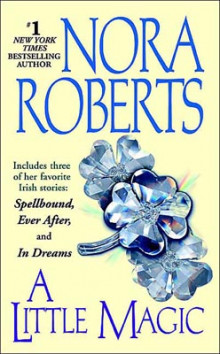 A Little Magic
A Little Magic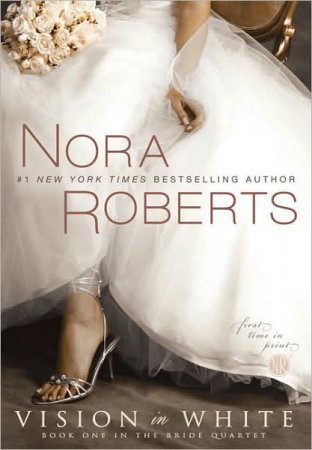 Vision in White
Vision in White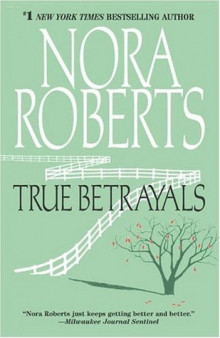 True Betrayals
True Betrayals The Next Always
The Next Always A Man for Amanda
A Man for Amanda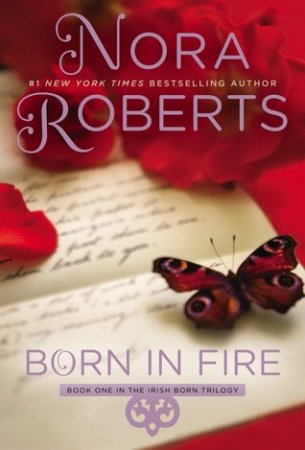 Born in Fire
Born in Fire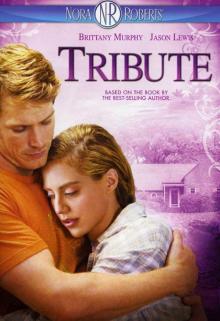 Tribute
Tribute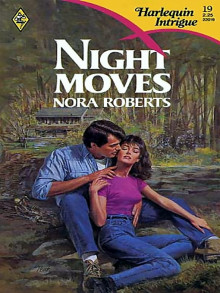 Night Moves
Night Moves Dance Upon the Air
Dance Upon the Air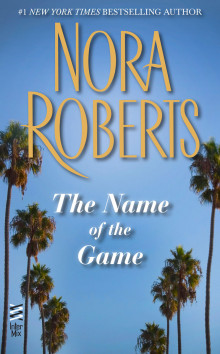 The Name of the Game
The Name of the Game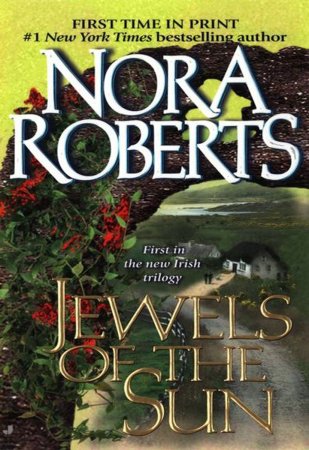 Jewels of the Sun
Jewels of the Sun River's End
River's End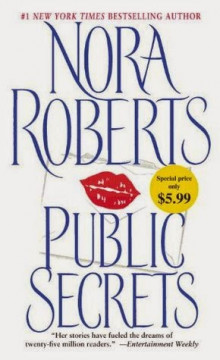 Public Secrets
Public Secrets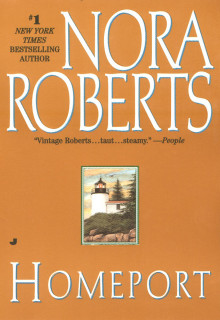 Homeport
Homeport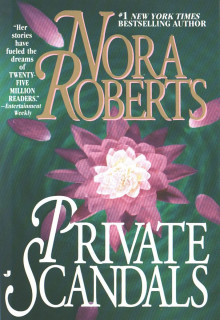 Private Scandals
Private Scandals The Witness
The Witness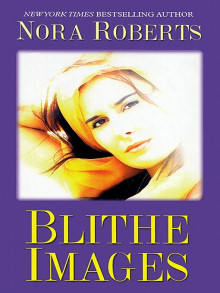 Blithe Images
Blithe Images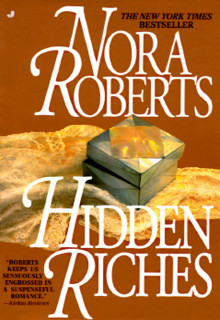 Hidden Riches
Hidden Riches Key of Light
Key of Light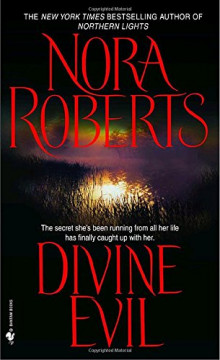 Divine Evil
Divine Evil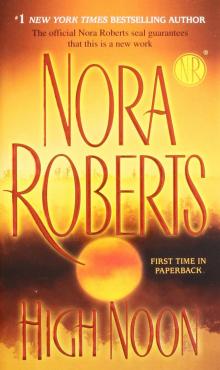 High Noon
High Noon Blue Dahlia
Blue Dahlia Sea Swept
Sea Swept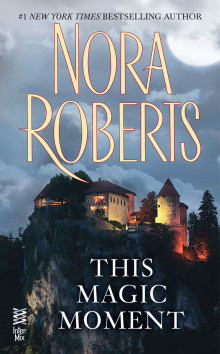 This Magic Moment
This Magic Moment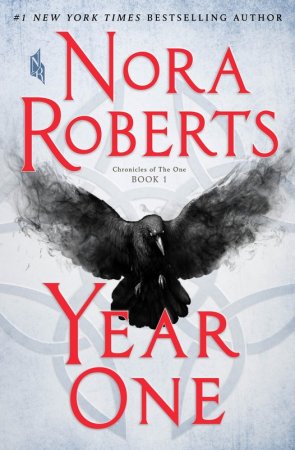 Year One
Year One A Little Fate
A Little Fate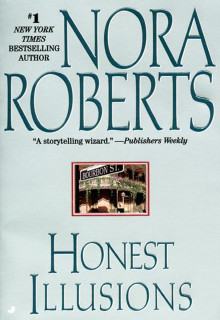 Honest Illusions
Honest Illusions The Reef
The Reef Shelter in Place
Shelter in Place The Hollow
The Hollow Holding the Dream
Holding the Dream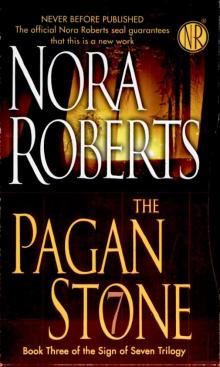 The Pagan Stone
The Pagan Stone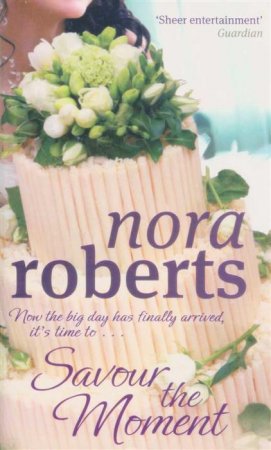 Savour the Moment
Savour the Moment The Perfect Hope
The Perfect Hope Island of Glass
Island of Glass Happy Ever After
Happy Ever After Bed of Roses
Bed of Roses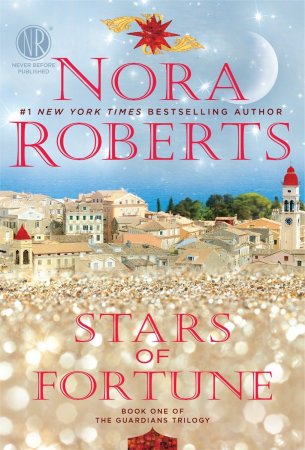 Stars of Fortune
Stars of Fortune Dark Witch
Dark Witch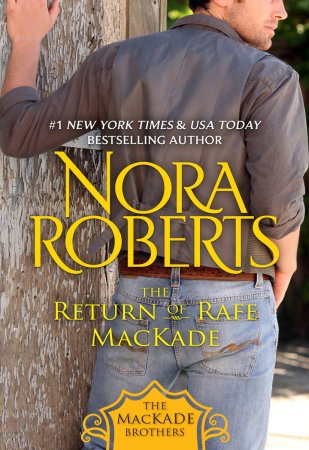 The Return of Rafe MacKade
The Return of Rafe MacKade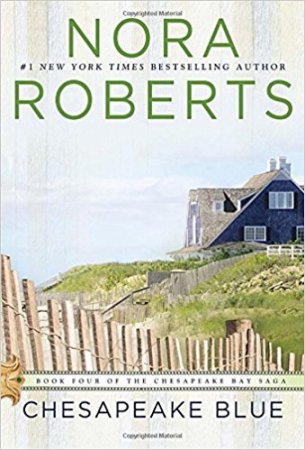 Chesapeake Blue
Chesapeake Blue The Perfect Neighbor
The Perfect Neighbor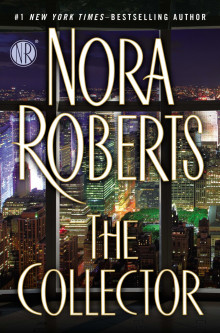 The Collector
The Collector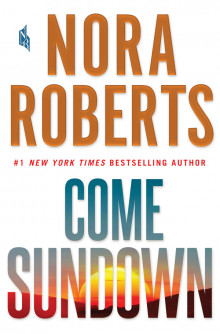 Come Sundown
Come Sundown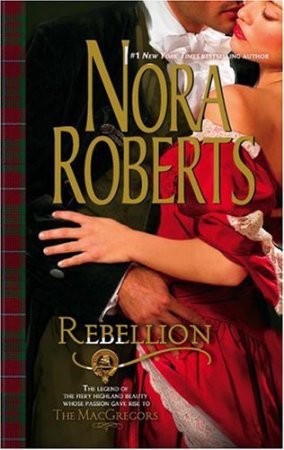 Rebellion
Rebellion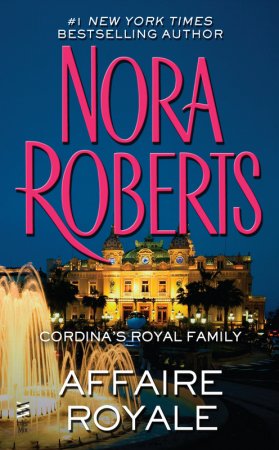 Affaire Royale
Affaire Royale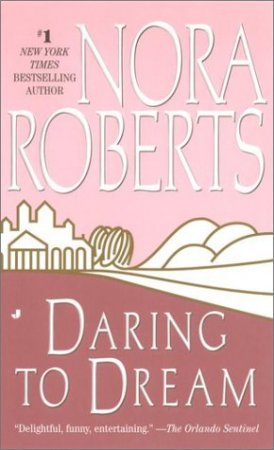 Daring to Dream
Daring to Dream Bay of Sighs
Bay of Sighs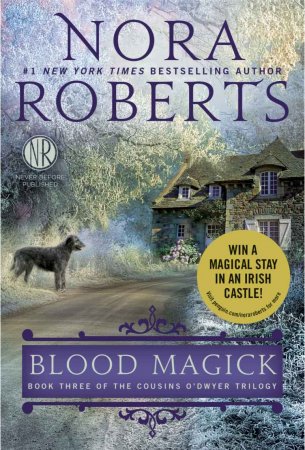 Blood Magick
Blood Magick Angels Fall
Angels Fall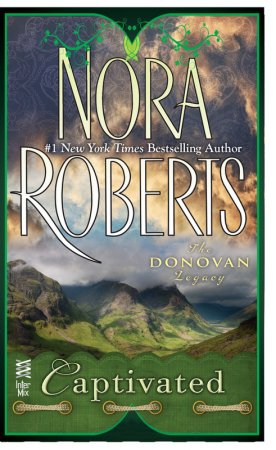 Captivated
Captivated The Last Boyfriend
The Last Boyfriend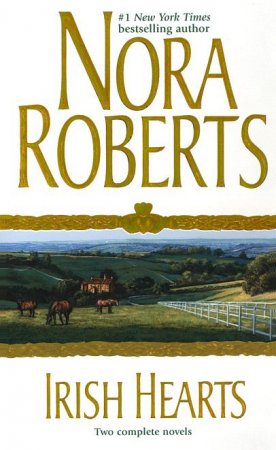 Irish Thoroughbred
Irish Thoroughbred Inner Harbor
Inner Harbor The Right Path
The Right Path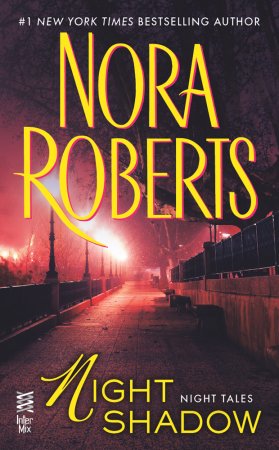 Night Shadow
Night Shadow The Heart of Devin MacKade
The Heart of Devin MacKade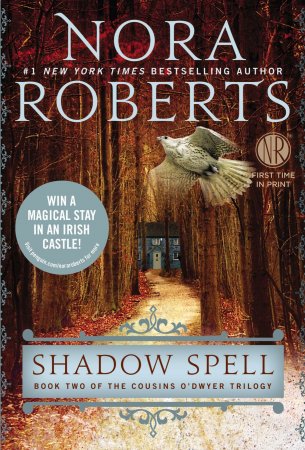 Shadow Spell
Shadow Spell The Playboy Prince
The Playboy Prince The Fall of Shane MacKade
The Fall of Shane MacKade Rising Tides
Rising Tides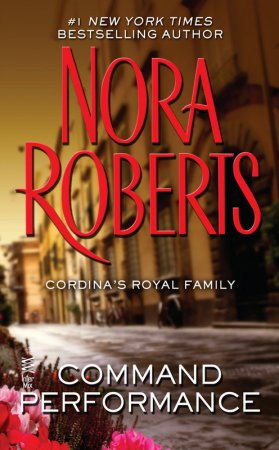 Command Performance
Command Performance Hidden Star
Hidden Star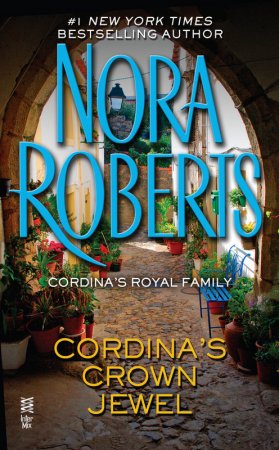 Cordina's Crown Jewel
Cordina's Crown Jewel The MacGregor Brides
The MacGregor Brides The Pride of Jared MacKade
The Pride of Jared MacKade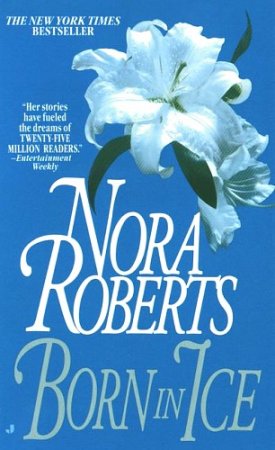 Born in Ice
Born in Ice Whiskey Beach
Whiskey Beach The Last Honest Woman
The Last Honest Woman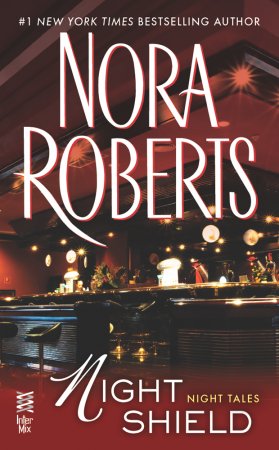 Night Shield
Night Shield Born in Shame
Born in Shame Secret Star
Secret Star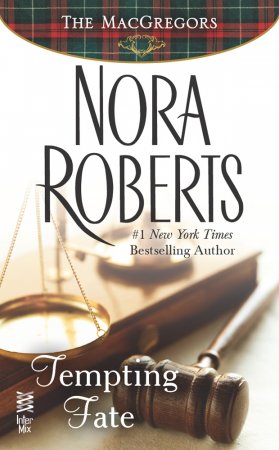 Tempting Fate
Tempting Fate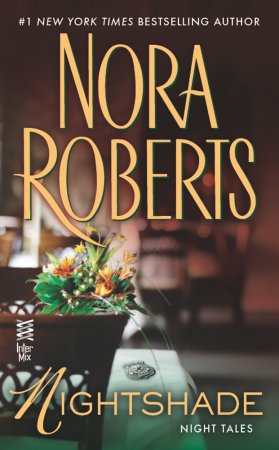 Nightshade
Nightshade The Obsession
The Obsession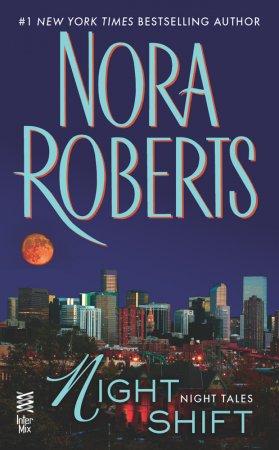 Night Shift
Night Shift Playing The Odds
Playing The Odds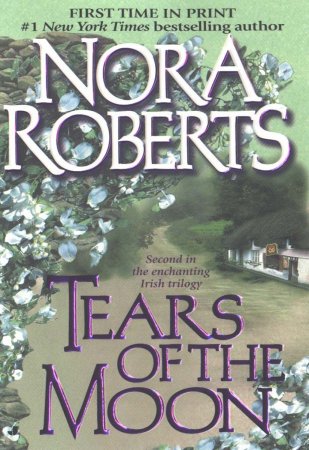 Tears of the Moon
Tears of the Moon One Man's Art
One Man's Art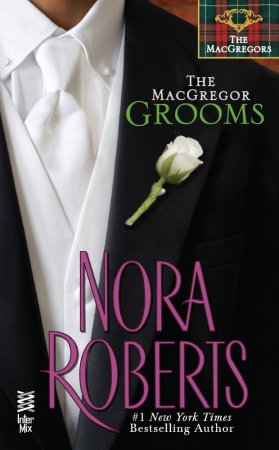 The MacGregor Groom
The MacGregor Groom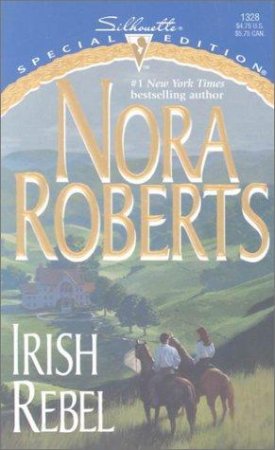 Irish Rebel
Irish Rebel Morrigan's Cross
Morrigan's Cross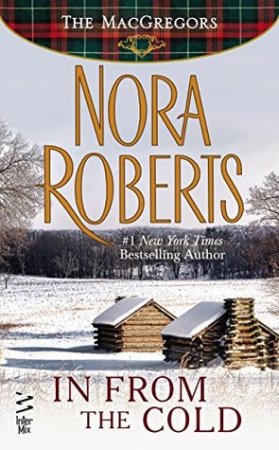 In From The Cold
In From The Cold Night Smoke
Night Smoke Finding the Dream
Finding the Dream Red Lily
Red Lily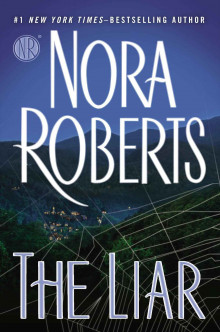 The Liar
The Liar Montana Sky
Montana Sky Heart of the Sea
Heart of the Sea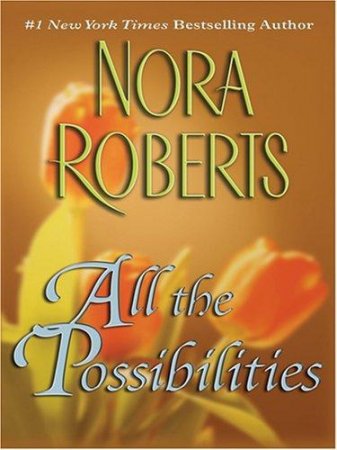 All The Possibilities
All The Possibilities Opposites Attract
Opposites Attract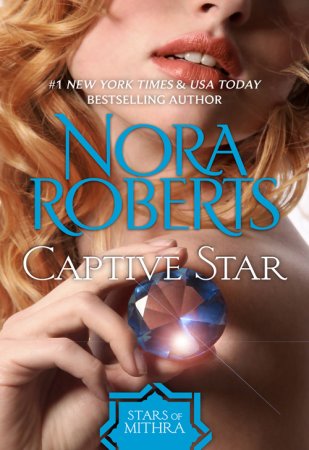 Captive Star
Captive Star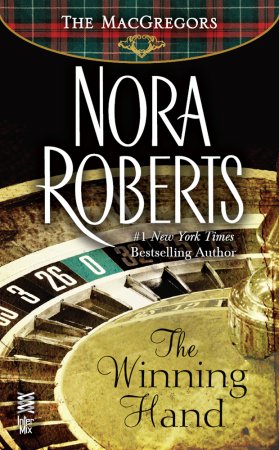 The Winning Hand
The Winning Hand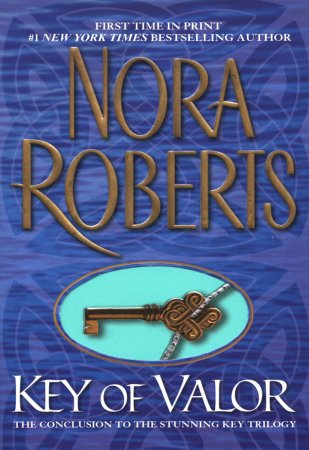 Key of Valor
Key of Valor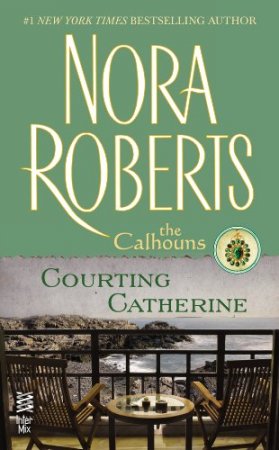 Courting Catherine
Courting Catherine Heaven and Earth
Heaven and Earth Face the Fire
Face the Fire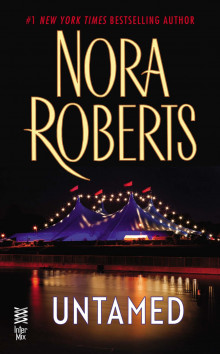 Untamed
Untamed Skin Deep
Skin Deep Enchanted
Enchanted Song of the West
Song of the West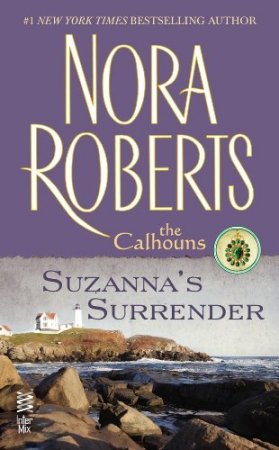 Suzanna's Surrender
Suzanna's Surrender Entranced
Entranced Dance of the Gods
Dance of the Gods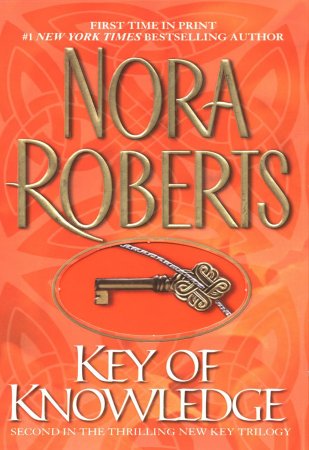 Key of Knowledge
Key of Knowledge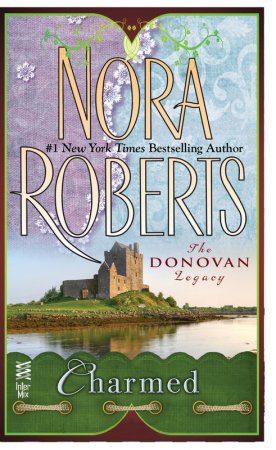 Charmed
Charmed For Now, Forever
For Now, Forever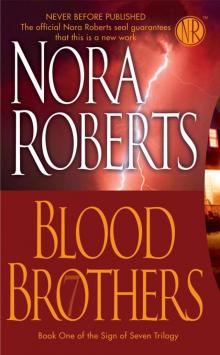 Blood Brothers
Blood Brothers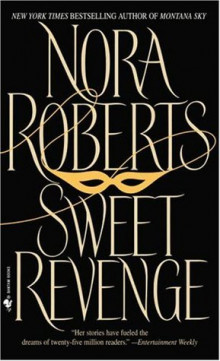 Sweet Revenge
Sweet Revenge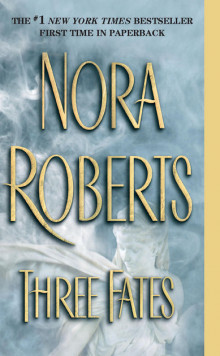 Three Fates
Three Fates Mind Over Matter
Mind Over Matter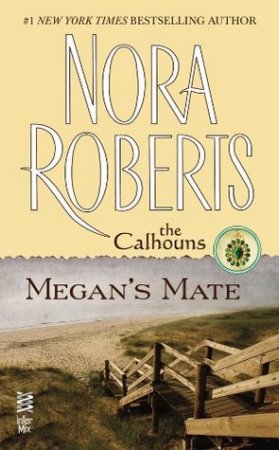 Megan's Mate
Megan's Mate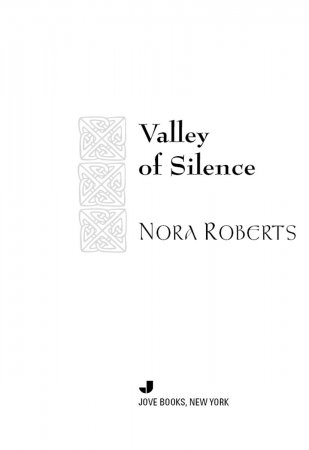 Valley of Silence
Valley of Silence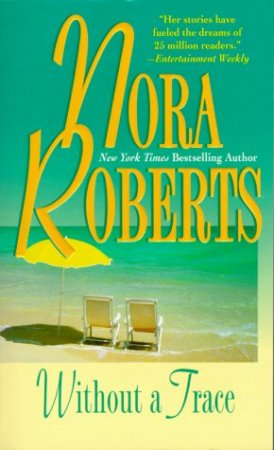 Without A Trace
Without A Trace The Law is a Lady
The Law is a Lady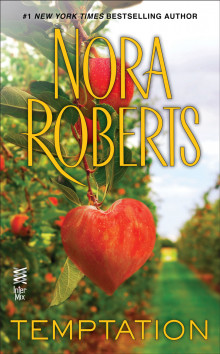 Temptation
Temptation Dance to the Piper
Dance to the Piper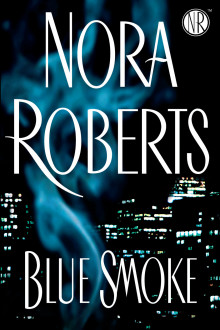 Blue Smoke
Blue Smoke Black Hills
Black Hills The Heart's Victory
The Heart's Victory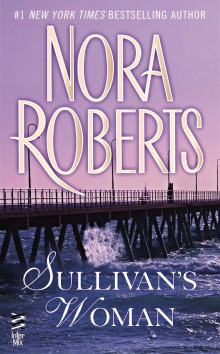 Sullivan's Woman
Sullivan's Woman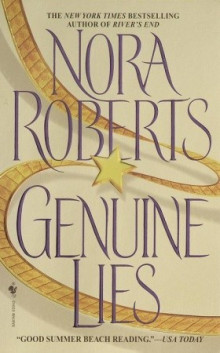 Genuine Lies
Genuine Lies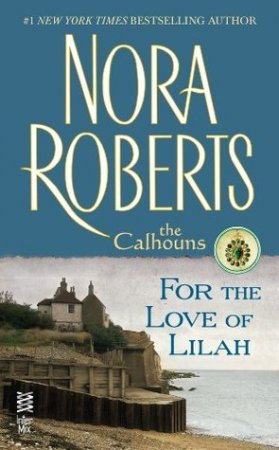 For the Love of Lilah
For the Love of Lilah Gabriel's Angel
Gabriel's Angel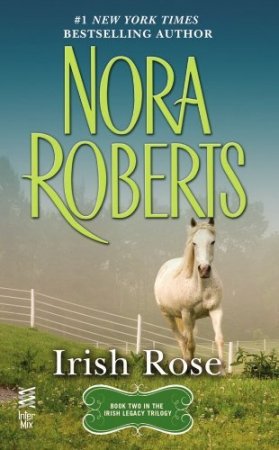 Irish Rose
Irish Rose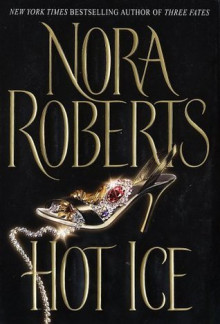 Hot Ice
Hot Ice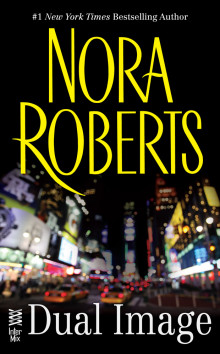 Dual Image
Dual Image Lawless
Lawless Catch My Heart
Catch My Heart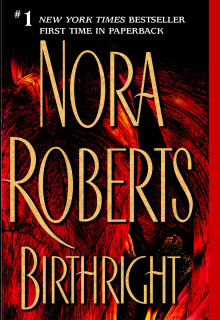 Birthright
Birthright First Impressions
First Impressions Chasing Fire
Chasing Fire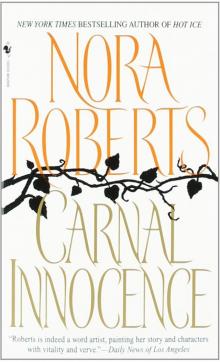 Carnal Innocence
Carnal Innocence Best Laid Plans
Best Laid Plans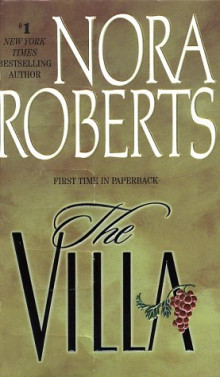 The Villa
The Villa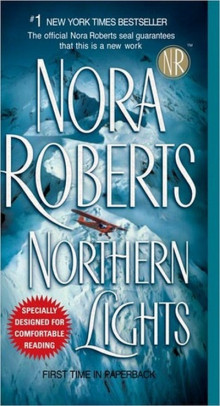 Northern Lights
Northern Lights Local Hero
Local Hero Island of Flowers
Island of Flowers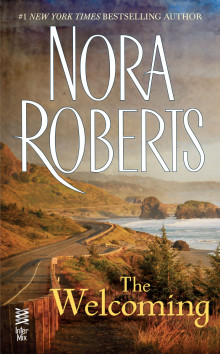 The Welcoming
The Welcoming All I Want for Christmas
All I Want for Christmas Black Rose
Black Rose Hot Rocks
Hot Rocks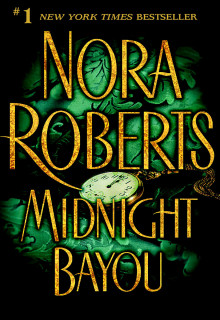 Midnight Bayou
Midnight Bayou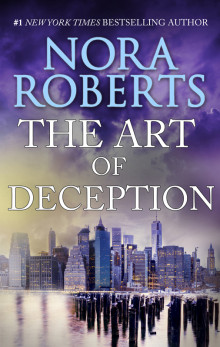 The Art of Deception
The Art of Deception From This Day
From This Day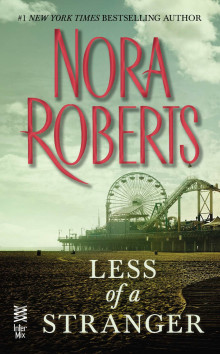 Less of a Stranger
Less of a Stranger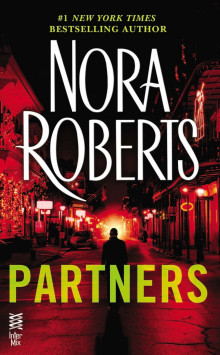 Partners
Partners Storm Warning
Storm Warning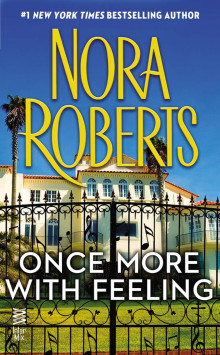 Once More With Feeling
Once More With Feeling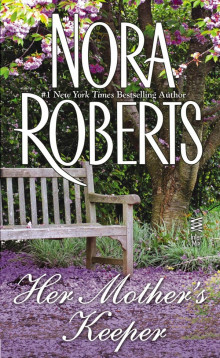 Her Mother's Keeper
Her Mother's Keeper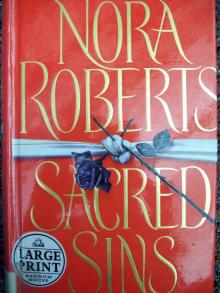 Sacred Sins
Sacred Sins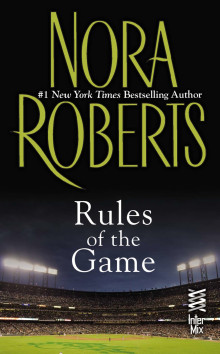 Rules of the Game
Rules of the Game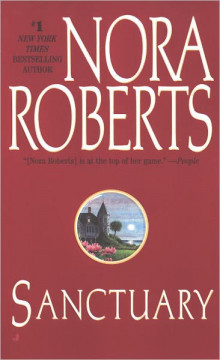 Sanctuary
Sanctuary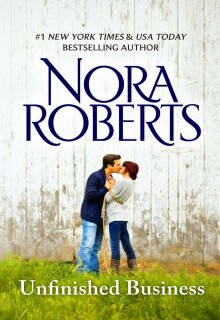 Unfinished Business
Unfinished Business Cordina's Royal Family Collection
Cordina's Royal Family Collection Dangerous Embrace
Dangerous Embrace One Summer
One Summer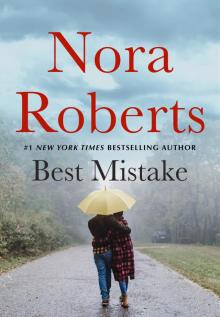 The Best Mistake
The Best Mistake Boundary Lines
Boundary Lines Under Currents
Under Currents The Stanislaski Series Collection, Volume 1
The Stanislaski Series Collection, Volume 1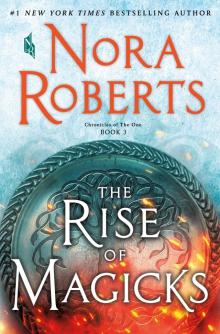 The Rise of Magicks
The Rise of Magicks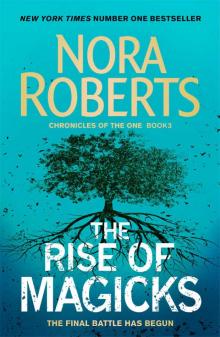 The Rise of Magicks (Chronicles of The One)
The Rise of Magicks (Chronicles of The One) The Awakening: The Dragon Heart Legacy Book 1
The Awakening: The Dragon Heart Legacy Book 1 Dance of Dreams
Dance of Dreams Skin Deep: The O'Hurleys
Skin Deep: The O'Hurleys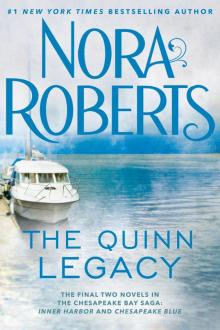 The Quinn Legacy: Inner Harbor ; Chesapeake Blue
The Quinn Legacy: Inner Harbor ; Chesapeake Blue![[Chronicles of the One 03.0] The Rise of Magicks Read online](http://i1.bookreadfree.com/11/chronicles_of_the_one_03_0_the_rise_of_magicks_preview.jpg) [Chronicles of the One 03.0] The Rise of Magicks
[Chronicles of the One 03.0] The Rise of Magicks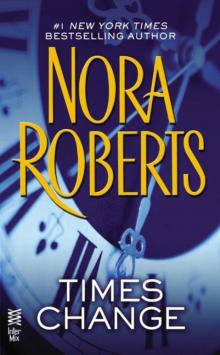 Times Change
Times Change Dance to the Piper: The O'Hurleys
Dance to the Piper: The O'Hurleys Christmas In the Snow: Taming Natasha / Considering Kate
Christmas In the Snow: Taming Natasha / Considering Kate Waiting for Nick
Waiting for Nick Summer Desserts
Summer Desserts Dream 2 - Holding the Dream
Dream 2 - Holding the Dream The Novels of Nora Roberts, Volume 2
The Novels of Nora Roberts, Volume 2 In the Garden Trilogy
In the Garden Trilogy Eight Classic Nora Roberts Romantic Suspense Novels
Eight Classic Nora Roberts Romantic Suspense Novels Best Laid Plans jh-2
Best Laid Plans jh-2 From the Heart
From the Heart Holiday Wishes
Holiday Wishes Dream 1 - Daring to Dream
Dream 1 - Daring to Dream Second Nature
Second Nature Summer Pleasures
Summer Pleasures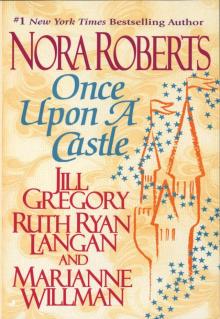 Once Upon a Castle
Once Upon a Castle Stars of Mithra Box Set: Captive StarHidden StarSecret Star
Stars of Mithra Box Set: Captive StarHidden StarSecret Star Impulse
Impulse The Irish Trilogy by Nora Roberts
The Irish Trilogy by Nora Roberts The Pride Of Jared Mackade tmb-2
The Pride Of Jared Mackade tmb-2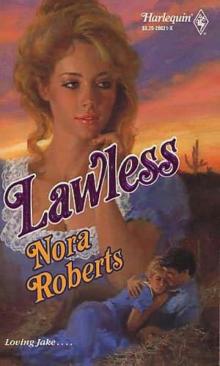 Lawless jh-3
Lawless jh-3 Taming Natasha
Taming Natasha Endless Summer
Endless Summer Bride Quartet Collection
Bride Quartet Collection Happy Ever After tbq-4
Happy Ever After tbq-4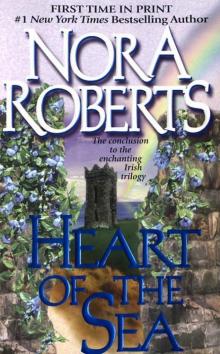 Heart Of The Sea goa-3
Heart Of The Sea goa-3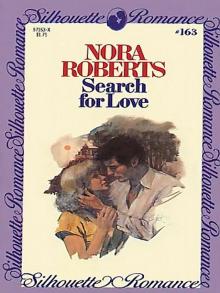 Search for Love
Search for Love Once upon a Dream
Once upon a Dream Once Upon a Star
Once Upon a Star Dream Trilogy
Dream Trilogy Risky Business
Risky Business The Novels of Nora Roberts, Volume 3
The Novels of Nora Roberts, Volume 3 Dream 3 - Finding the Dream
Dream 3 - Finding the Dream Promises in Death id-34
Promises in Death id-34 The Novels of Nora Roberts, Volume 4
The Novels of Nora Roberts, Volume 4 The Perfect Hope ib-3
The Perfect Hope ib-3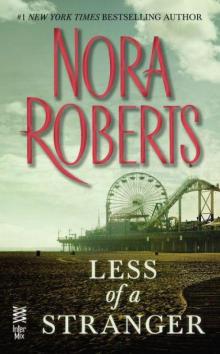 Less than a Stranger
Less than a Stranger Savour the Moment: Now the Big Day Has Finally Arrived, It's Time To...
Savour the Moment: Now the Big Day Has Finally Arrived, It's Time To... Convincing Alex
Convincing Alex Bed of Roses tbq-2
Bed of Roses tbq-2 Savour the Moment tbq-3
Savour the Moment tbq-3 Lessons Learned
Lessons Learned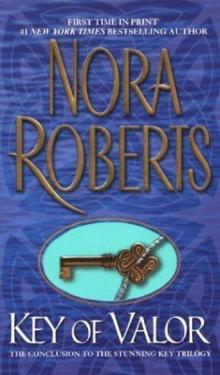 Key Of Valor k-3
Key Of Valor k-3 Red lily gt-3
Red lily gt-3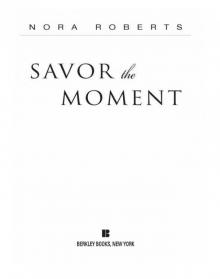 Savor the Moment
Savor the Moment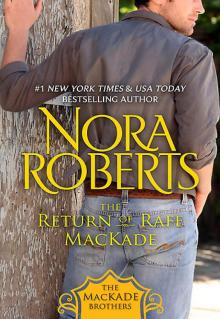 The Return Of Rafe Mackade tmb-1
The Return Of Rafe Mackade tmb-1 For The Love Of Lilah tcw-3
For The Love Of Lilah tcw-3 Black Rose gt-2
Black Rose gt-2 Novels: The Law is a Lady
Novels: The Law is a Lady Chesapeake Bay Saga 1-4
Chesapeake Bay Saga 1-4 Considering Kate
Considering Kate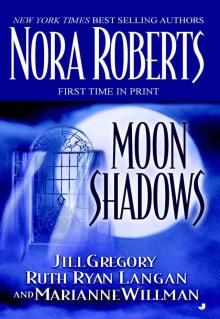 Moon Shadows
Moon Shadows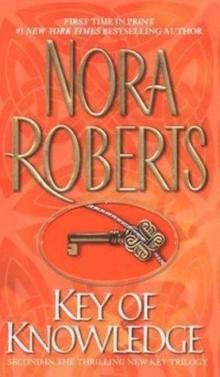 Key of Knowledge k-2
Key of Knowledge k-2 The Sign of Seven Trilogy
The Sign of Seven Trilogy Once Upon a Kiss
Once Upon a Kiss The Novels of Nora Roberts, Volume 5
The Novels of Nora Roberts, Volume 5 Suzanna's Surrender tcw-4
Suzanna's Surrender tcw-4 The Quinn Brothers
The Quinn Brothers Falling for Rachel
Falling for Rachel Brazen Virtue
Brazen Virtue Time Was
Time Was The Gallaghers of Ardmore Trilogy
The Gallaghers of Ardmore Trilogy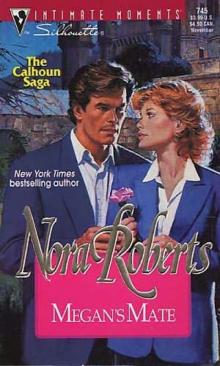 Megan's Mate tcw-5
Megan's Mate tcw-5 Loving Jack jh-1
Loving Jack jh-1 Rebellion & In From The Cold
Rebellion & In From The Cold Blue Dahlia gt-1
Blue Dahlia gt-1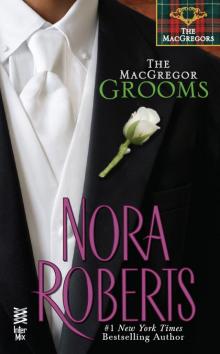 The MacGregor Grooms
The MacGregor Grooms The Next Always tibt-1
The Next Always tibt-1 The Heart Of Devin Mackade tmb-3
The Heart Of Devin Mackade tmb-3 The Novels of Nora Roberts Volume 1
The Novels of Nora Roberts Volume 1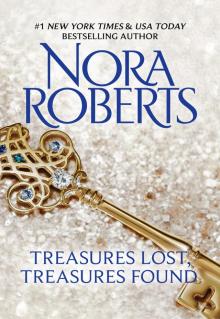 Treasures Lost, Treasures Found
Treasures Lost, Treasures Found Nora Roberts's Circle Trilogy
Nora Roberts's Circle Trilogy The Key Trilogy
The Key Trilogy The Fall Of Shane Mackade tmb-4
The Fall Of Shane Mackade tmb-4 A Will And A Way
A Will And A Way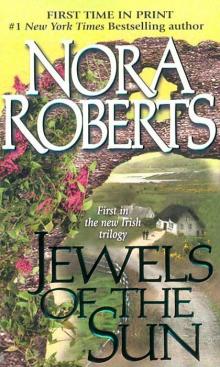 Jewels of the Sun goa-1
Jewels of the Sun goa-1 Luring a Lady
Luring a Lady